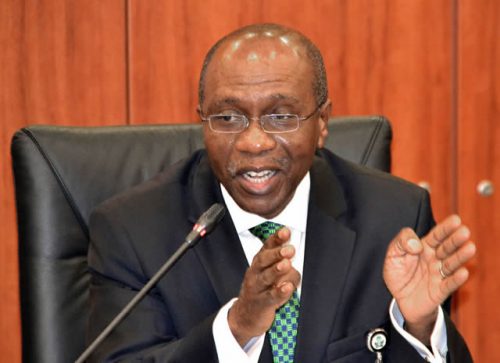The Central Bank of Nigeria’s (CBN’s) Monetary Policy Committee meeting concluded its second meeting for the year on Tuesday, raising the Monetary Policy Rate (MPR), the benchmark lending rate, to 18% from the 17.5% rate set at the committee’s last meeting.
The CBN Governor, Godwin Emefiele, who made this disclosure while briefing the media on the key decisions of the committee as contained in the communiqué issued at the end of the meeting, said the committee voted to keep the asymmetric corridor at +100 and -500 basis points around the MPR.
The apex bank’s governor attributed the slight jack up of the MPR to the need to mitigate the effect of inflation and other economic issues of the economy.
On the micro and macroeconomic parameters that informed the committee’s decision on the MPR, Emefiele said: “MPC examined the impact of possible further rate hike on the stability of the banking system and was convinced that a further rate hike would not have a negative impact on the stability of the banking system.”
According to him, Nigerian banks are not affected by the current banking crisis in the United States of America and Switzerland because they were not directly exposed to the affected banks.
The CBN governor further pointed out that MPC focused not only on the inflationary trend in most economies of the world but also on the reported impact of policy rate hikes aimed at reining in inflation and financial systems stability in the global financial system before arriving at its decisions.
Emefiele further clarified: “MPC hence took time out to discuss the recent bank failures in the US and Switzerland and the events that occurred following the persistent hikes in the US and how this has adversely impacted the broad portfolio of banks in the US.
“Following new risks of financial contagion emerging from the scenario of failed banks in some advanced economies, members (of the PMC) examined the possibility of shocks in the Nigerians banking system and concluded that Nigerian banks remain considerably insulated from such likely contagion.
“The banks have been able to achieve this through micro and macro prudential guidelines that ensured that individual banks and the banking industry in Nigeria have adequate buffers to ward-off global contagion”, he added.
To ensure sustained stability of Nigeria’s financial system, the CBN governor promised that the apex bank would increase its supervisory and regulatory roles to ensure that the Nigerian banks remained stable and resilient.






